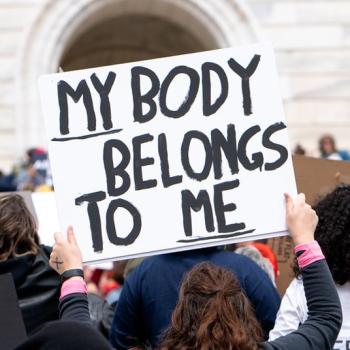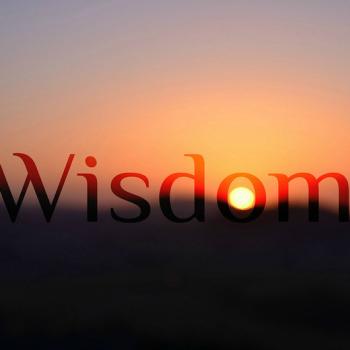Do we ever learn? Practical Spirituality series.
It was depressing. Why are people stuck in old attitudes and unwilling to change? For many decades, I painstakingly slogged through understanding and working with human behavior, from religion to attitude change psychology, to spirituality. I had some nice successes helping individuals and companies change things that were difficult to change.

Last year I reached an impasse. I had it all figured out. Most people are simply hopeless.
Well, not really. A fellow manager once asked me if people ever change. I answered, “Yes, but it’s a very slow process that takes many years. They change through experience.” I keep forgetting this.
Spirituality is a slow burn, not instant enlightenment and change.
“Do not judge so that you will not be judged. For in the way you judge, you will be judged; and by your standard of measure, it will be measured to you. Why do you look at the speck that is in your brother’s eye, but do not notice the log that is in your own eye?”
Matthew 7: 1-3 (NASB)
The wisdom to know the difference
I use a 5-pound hammer a lot. I tell people it’s because I don’t take no for an answer. But it’s useless for changing people. That’s wisdom.
People have to want to change, have the capacity to change, and you have to be the right person to work with them. Otherwise it’s a useless pursuit. That’s the first bit of wisdom. I learned in a college psychology lab that the most compelling message ever, goes absolutely nowhere if people aren’t interested in changing.
College is where I discovered the principles of attitude. It was more helpful than chasing rats through a maze. As a pastor I thought that if you delivered a three-point sermon that this sufficed to affect change. Nope. Not even if you deliver it again and even make a series out of it. It’s the Spirit of God who is instrumental in making change.
Attitude comes from experience. It’s emotionally laden and deeply rooted. Emotion is much more influential than reason. Sometimes pushing people to do things differently, despite their emotional glue, was what it took to affect change. The behavioral aspect of attitude can work in reverse. Caveat: This method usually backfires.
I learned in focus groups that men and women are different about changing. Women respond more to security messages. Men seek their own information to make their own decision and resist compelling information.
In the first part of this century, I saw that polarization is a problem. Polarization means deeply entrenched attitudes, glued in place by many things that affect emotion, such as tribal commitments and feelings of lack of control. It affects the highly educated, the lowly educated, and everyone in-between.
My writing is mostly for New Adults age 18 to 30. They have open minds that are receptive to new information. They can change their behavior.
Polarization is normal. We all need our place in life. We need anchored and shouldn’t have our minds changed with each new piece of information. If not we live in complete chaos.
For some things, such as well engrained cultural things, change comes very slowly. Change by death is common in that the generation has to dwindle or die off for full acceptance of some things.
Radical polarization is disturbing. Many in the US and other parts of the world are unreachable. Even listening to another point of view is highly threatening and absolutely refused. We see this in domestic and foreign terrorist individuals and groups. They feel unable to create change to their situation, feel hopeless, desperate, and resort to stubborn refusal and even violence. Talking to them makes them even more entrenched and they will even believe fairy tales to maintain their position. It’s best not to butt heads with them because it makes them worse.
Radical polarization is dangerous as it pits one group against another, and things like misinformation raise the temperature to the boiling point so that individuals strike out just to make a point. Some politicians and other groups have become very skilled at causing radical polarization to maintain their place in power. It has caused violence.
Off the proverbial cliff
Once you realize that polarization is hopeless, you think you see humanity driving itself off a cliff.
Next, you realize it isn’t just the polarized who resist change. Introspection is a rare quality in today’s age. People do what they want and think it’s fine.
This is a foreign concept to me. Not that I’m better than anyone, I just think that examining your own motives and behavior is essential to worthwhile living. Introspection becomes motivation for change. Of course, I realize I need to change and then do the same thing again. Woe is me.
And then you remember everyone sitting in church, hearing the sermon, and thinking it only applies to some other person. The board in their own eye somehow magnifies the splinter in another’s eye. Seems like it has always been this way from the time of Jesus and before.
Insight
One day God gives you some insight. We’re all imperfect but none of us have the same faults. Intellectually we know this, but it doesn’t take root in our psyche. We all are working on different things; call them life lessons. None of us have the same mission in life. We are all in different places. It’s never for us to judge others, even if it’s just grousing about their place driving the world’s fate.
Over time I’ve realized that spiritual growth isn’t linear. It doesn’t happen with one step following another. We’re all over the place. One person is coping with loss of parents at an early age, while another is learning from being bullied. One is learning from discrimination, while another is learning from lack of meaning. One is learning about love from being rejected, and another is learning about how to love others.
None of us is better than any other person. Our attitudes result from our nature and our experiences, or lack of experiences. We are what we are. We need stability in our belief and meaning (attitude) frameworks to interpret experiences so we can learn.
Yes, many of us have different perspectives on what is right and wrong. Some see it more clearly than others. Some have even delineated the growth steps that many take, such as Lawrence Kohlberg, who developed principles of moral development. Most people continue moral development until around age 27. Interestingly, age 27 is now the average age when people leave their parent’s home, and it’s also the average age at which people get married.
James Fowler outlined stages of faith in which he gives us a good idea of what we would experience throughout our lives. And various authors wrote many books on life stages which most of us will experience. Each life stage has its own challenges and perspectives.
What does it all mean to us?
We need to allow others time to grow and time to do the unique things that are in their lives.
It generally does no good to force change on people. They won’t change until they are ready. Forcing them may backfire.
It’s not good to poke the bear. We need the wisdom to understand that there is simply no changing some peoples’ minds. If we antagonize them it just makes them reach for ridiculous excuses to maintain their position, and they may strike out in other ways. Some things only change when the generation passes away.
Sometimes people have to learn certain things before they can learn others. It’s like trying to learn algebra before learning to add; it’s just not possible.
Even if it’s a broad generalization, we shouldn’t judge others. Their lives are a mystery to us. We don’t know when they will be ready for change. We don’t know what the Spirit of God is doing in their lives.
Change is driven by experience, both positive and negative. Experience and relationships create emotion, and emotion is the driver of behavior. Giving people knowledge can be helpful, but it doesn’t drive change. But providing knowledge and wisdom in advance can provide helpful tools for people when they are ready to change.
The best any of us can do is to be there for people when they are ready to change. And when they are ready to change, in my experience, there is no stopping them. They just need the vehicle and sometimes that vehicle is another person who can guide them.
Despite the headlines, the world isn’t going over the precipice. We are doing exactly what God has set before us, and that is to experience, learn, and love. And then change ourselves and the world. There is hope for us all.
A space for thought
I like to give people a space for thought. There are probability and potential spaces. A probability space aligns with things that are likely to happen in some form. The conditions are right for this to happen and there’s a need. A potential space is a time for total creativity for something completely unique.
Potential space question: How should we change the world so that we stop trying to force change on people, which can make the problem worse? Or are some changes essential for the good of all, so forcing them is the right thing to do?
- Dorian
Our answer is God. God’s answer is us. Together we make the world better.

















